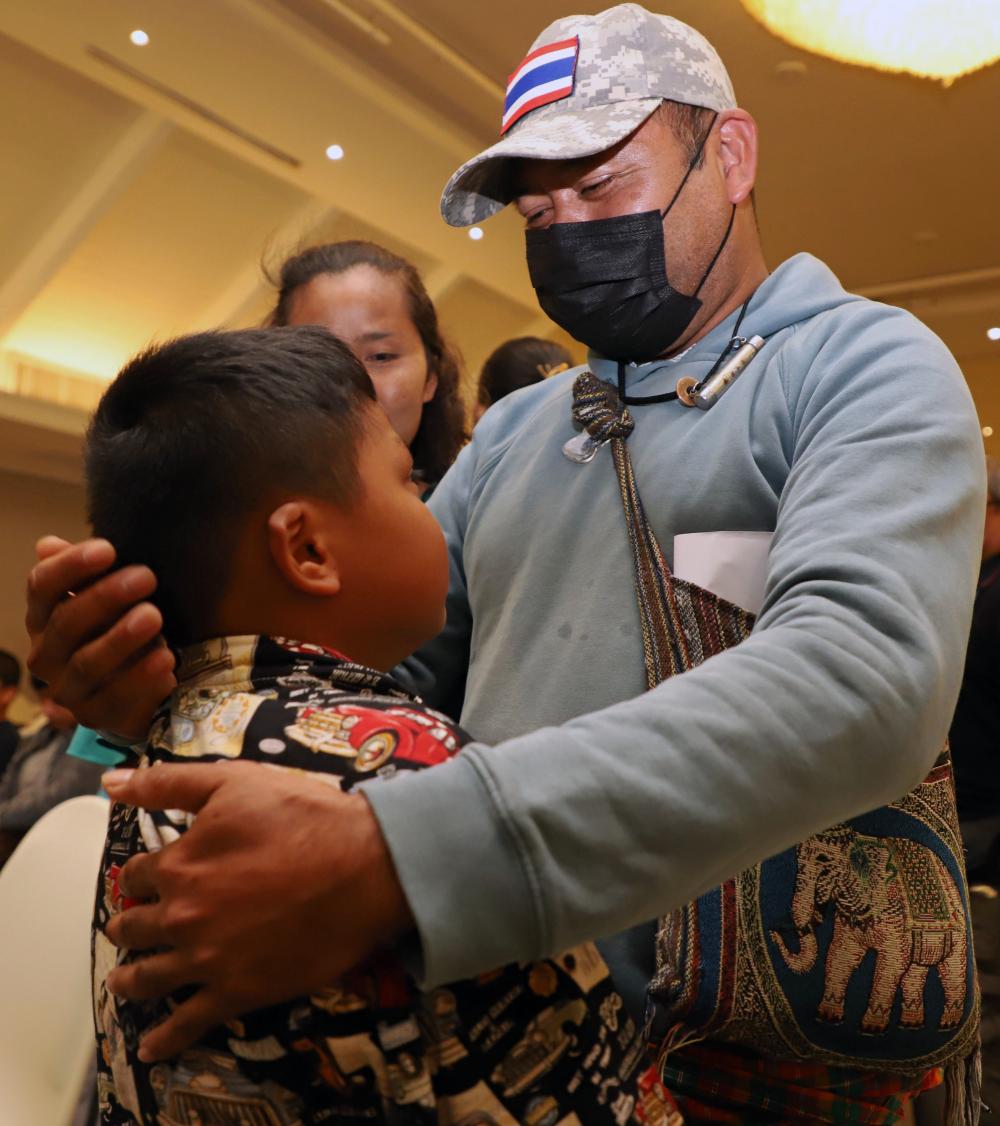Four more Thai nationals have been killed in the Israel-Hamas violence, bringing the Thai death toll to 28 with 16 wounded and 17 others held hostage, according to the prime minister.
Speaking after chairing the Rapid Response Centre (RRC) meeting at the Foreign Ministry, Prime Minister Srettha Thavisin said the situation remains fluid and the government has prioritised bringing all Thai workers home by the end of this month.
However, the challenge is to increase the number of repatriation fights, he said. As of now, a total of 32 flights are being planned by commercial airlines which can take about 5,700 people home.
The current arrangement is insufficient to meet demand because the number of evacuees who have registered exceeds 7,000 and may increase as the fighting continues, he said.
According to Mr Srettha, extraction by air is the only option as sea and road routes are closed, so the government is working to extract the workers to nearby countries such as Jordan before their onward journey home.

One of the 90 Thai workers who returned from Israel hugs his son, who waited to greet him at SC Park Hotel in Wang Thonglang district, Bangkok on Sunday. (Photo: Varuth Hirunyatheb)
Mr Srettha also pledged to intensify efforts to negotiate the release of those abducted, saying the Foreign Ministry is using both formal and informal channels.
He added the Foreign Ministry will also address the paperwork issue for those who lost their passports.
Labour Minister Pipat Ratchakitprakarn said the prime minister’s pressing concern is to find more aircraft for the repatriation effort.
Currently, there are six — two apiece from Nok Air and AirAsia, one from Thai Airways International and the other from the Air Force — for repatriation flights.
A total of 7,540 Thais have filled out forms at the embassy, with 7,446 intending to return home and 94 wanting to stay in Israel, he said as he led senior officials to greet the third group of 90 Thai workers at SC Park Hotel in Bangkok.
The labour minister said another batch of 137 Thais are scheduled to arrive early this morning at Don Mueang airport on the Royal Thai Air Force plane.
He said some workers, whose number is yet to be confirmed, will travel on commercial flights but can keep their boarding passes or tickets for expense reimbursement.
About 200 Thai workers have been repatriated despite the passports of some being lost while fleeing to seek refuge in bunkers.
The number of evacuees is likely to increase to 400 per day over the next few days.
Fifteen officials from the Labour Ministry and the Foreign Ministry have been sent to Israel to coordinate and all 7,000 Thais who registered to return will be repatriated by early next month, he said.
He said the Labour Ministry will talk to Israeli employers or job placement firms for the workers who want to return before their employment contracts end, whether or not they wish to go back when the situation returns to normal or find new jobs in other countries.
Chaiya Boonsang, 39, one of the returnees, yesterday recounted how he survived the Hamas attack on Oct 7.
The workers barricaded the factory’s door and fled to the rooftop when the militants tried to gain entry. They hid there for three days, without electricity and water supplies, and tried to contact the embassy for assistance.
“The moment I fled to hide in the rooftop, I thought of nothing but survival. I was so scared of dying. It’s the most violent attack I have witnessed since I worked there,” he said.
He left to work on a farm in Israel in August last year under a five-year contract.
Mr Chaiya, who was greeted by his mother and his son, said he had not contacted his family until he was safe as he didn’t want them to worry.
“I went to work there due to the economic fallout of the Covid-19 pandemic. But now I’ll be looking for jobs here in Thailand. I have no thoughts of returning to Israel,” he said.


